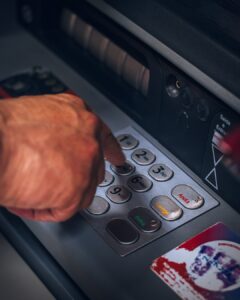Forex trading has gained significant popularity in recent years, attracting a wide range of individuals from various backgrounds and cultures. However, for Muslim traders, there is an important question that needs to be addressed: is forex trading halal or haram?
To answer this question, we need to delve into the fundamental principles of Islam and understand how they relate to the world of forex trading. In Islam, Sharia law governs all aspects of life, including financial transactions. Sharia law prohibits any form of gambling, speculation, or uncertainty, as it goes against the principles of fairness, transparency, and risk-sharing.
Forex trading involves the buying and selling of currencies with the aim of making a profit from the fluctuations in their exchange rates. This raises concerns among Muslim traders as it may be perceived as a form of gambling or speculation. However, it is crucial to differentiate between forex trading and gambling to determine its compliance with Islamic principles.
One of the key factors that distinguish forex trading from gambling is the element of skill and knowledge. Unlike gambling, forex trading requires a deep understanding of the global economy, market trends, and technical analysis. Successful traders spend significant time and effort analyzing charts, studying economic indicators, and developing trading strategies. This level of expertise and knowledge makes forex trading more akin to a business or investment activity rather than a game of chance.
Another important consideration is the concept of riba or usury in Islamic finance. Riba refers to the charging or payment of interest on loans or debts. In Islam, riba is strictly prohibited as it creates an unfair advantage for lenders and leads to economic exploitation. In the context of forex trading, interest is often charged or paid on positions held overnight, also known as swap or rollover fees. Muslim traders are concerned about the compliance of these fees with Sharia law.
To address this concern, many forex brokers offer Islamic trading accounts, also known as swap-free accounts, which do not charge or pay interest on overnight positions. Instead, these accounts charge an administration fee or adjust the spreads to compensate for the absence of interest. This allows Muslim traders to participate in forex trading without violating the principles of riba.
However, it is important for Muslim traders to exercise caution when choosing a forex broker offering Islamic accounts. They should ensure that the broker is reputable, regulated, and transparent in its operations. It is advisable to consult with religious scholars or Islamic finance experts to verify the compliance of the broker’s offerings with Sharia law.
In addition to the concerns regarding gambling and riba, Muslim traders should also consider the element of uncertainty or gharar in forex trading. Gharar refers to excessive uncertainty or ambiguity in a transaction, which can lead to disputes or exploitation. In the context of forex trading, gharar arises from the unpredictable nature of currency exchange rates and market fluctuations.
To mitigate the element of gharar, Muslim traders are advised to adhere to certain principles in their forex trading activities. Firstly, they should avoid excessive speculation or high-risk trading strategies that may lead to uncertainty and potential losses. Instead, they should focus on long-term investments, fundamental analysis, and risk management techniques to minimize the element of gharar.
Furthermore, transparency and fairness are crucial in forex trading for Muslim traders. They should ensure that their trading activities are conducted in a transparent manner, with clear terms and conditions, and without any hidden fees or charges. It is also important to avoid insider trading or any form of market manipulation, as it goes against the principles of fairness and integrity in Islamic finance.
In conclusion, forex trading can be considered halal for Muslim traders if conducted in accordance with the principles of Sharia law. It is crucial to differentiate forex trading from gambling, as it involves skill, knowledge, and analysis rather than relying solely on chance. Muslim traders should also ensure compliance with the principles of riba and gharar, by choosing reputable brokers offering Islamic accounts and adhering to transparent and fair trading practices.
However, it is important to note that individual interpretations of Islamic principles may vary among scholars and traders. Therefore, it is advisable for Muslim traders to seek guidance from religious scholars or Islamic finance experts to ensure compliance with their personal beliefs and values.





